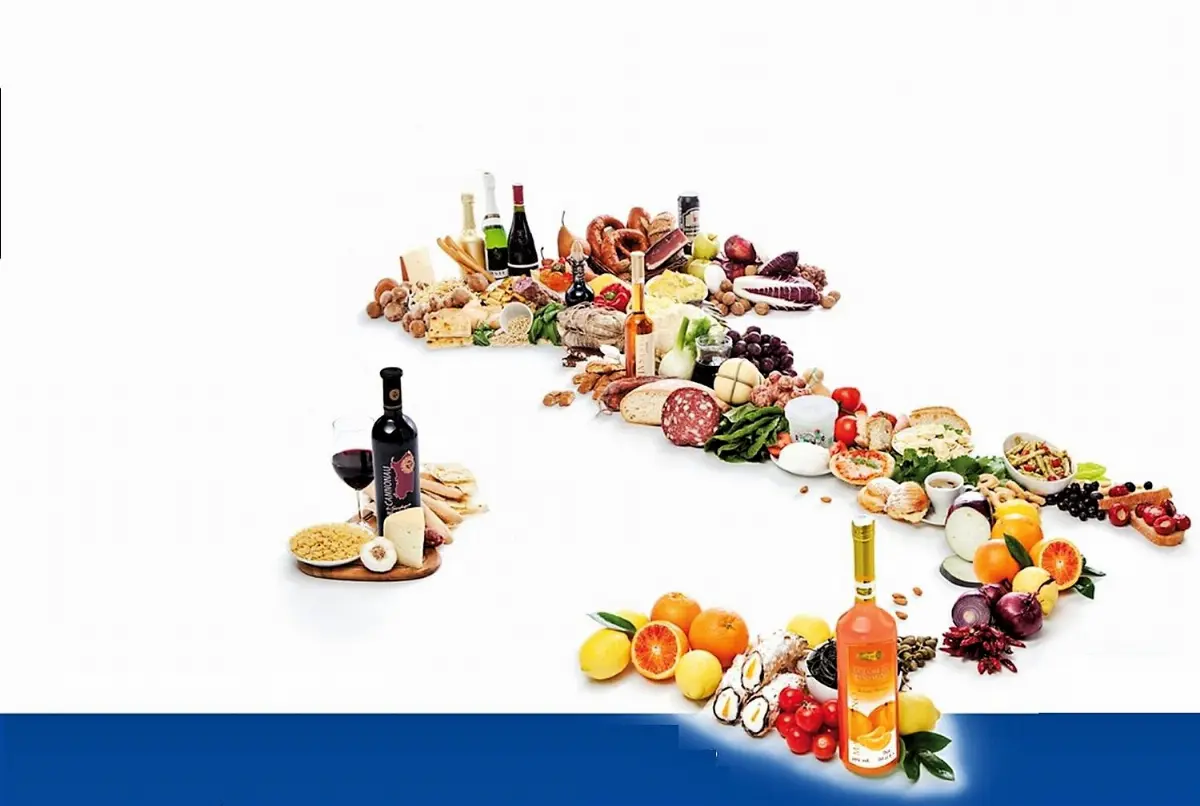
Agribusiness first supply chain by contribution to national GDP
Teha's report presented at the 9th F&B Forum in Bormio confirms this: of €707 bn turnover in the sector

With 891 PDO and PGI products, Italy ranks first in Europe in terms of the number of certifications: this segment generated 20.2 billion euros in sales in 2023, with wine the leading product by value generated, followed by cheese and meat products.
Agribusiness is confirmed as the first production chain by contribution to the national GDP with 19.8 percent considering upstream activities, such as machinery production or energy supply, and downstream activities, such as packaging or packaging. This was sentenced by data compiled by Teha-The European house Ambrosetti at the 9th edition of the Food&Beverage forum in Bormio: according to the report, the food and beverage supply chain, composed of the agricultural sector, the food and beverage industry and intermediation, distribution and catering, exceeded 707 billion Euros in total turnover, up 34 percent compared to 2015 by employing 5.8 million workers.
In 2023, the sector generated 74 billion Euros in direct value added, a result worth 2.5 times the Made in Italy fashion and more than 5 times the chemical industry. Italy is also the third among the largest EU countries in terms of added value in agribusiness, accounting for 3.9% of GDP: the sector, however, according to the report, suffers from a fabric made up of so many microenterprises. More than 8 out of 10 companies, in fact, are micro-enterprises, responsible for just 9.9% of the food&beverage sector's total value added.
Large companies stand out for productivity, which, however, represent only 0.3 percent of the entire sector: they have a productivity of 105,200 euros per employee, a value 1.5 times (1.4) higher than the EU-27 average and even better than Spain (1.6 times), Germany (1.5) and France (1.2).
"The structure of a company affects its ability to cope with geopolitical changes, new regulations and rapidly evolving market demands such as those we are going through -comments Valerio De Molli, managing partner and ceo of TEHA-. And in the food&beverage sector, we found through dedicated research that today 36.5% of companies are concerned about sustaining operations, a figure that is up 1.4% from 2024".
"During the 9th edition of the food&beverage forum in Bormio we will define policy proposals involving the entire extended agri-food system -adds De Molli- we will be defining a series of measures to support the food and beverage sector. The measures we are proposing aim to support innovation and digitization, simplify access to credit, enhance certified supply chains, promote sustainability along the entire value chain, attract young talent through more qualifying training paths, and ensure a stable and business-friendly regulatory framework. At a time when the country's future hinges on its ability to cope with ongoing changes with new tools, Italian agribusiness can and must become a resilient, digital and inclusive growth model. This requires a shared, data-driven strategic plan that involves the entire supply chain and looks far ahead".
Typical products drive exports
With 891 PDO and PGI products, Italy ranks first in Europe in terms of the number of certifications: this segment generated 20.2 billion euros in sales in 2023, with wine the leading product by value generated, followed by cheese and meat products. Together, certified productions account for 10.8 percent of the food&beverage sector's turnover and contribute 19.9 percent to national food exports.
"Certifications -adds Benedetta Brioschi, TEHA partner- not only support exports, but also strengthen the global positioning of Made in Italy, as also demonstrated by the average value of Italian agrifood exports, which is 254.5 euros per 100 kg, the highest among the main European countries.
EFA News - European Food Agency